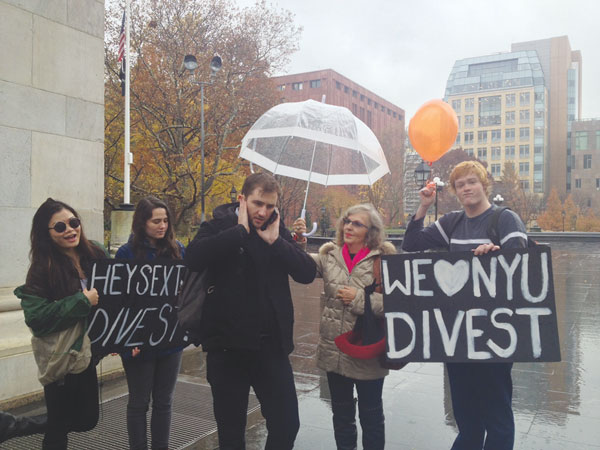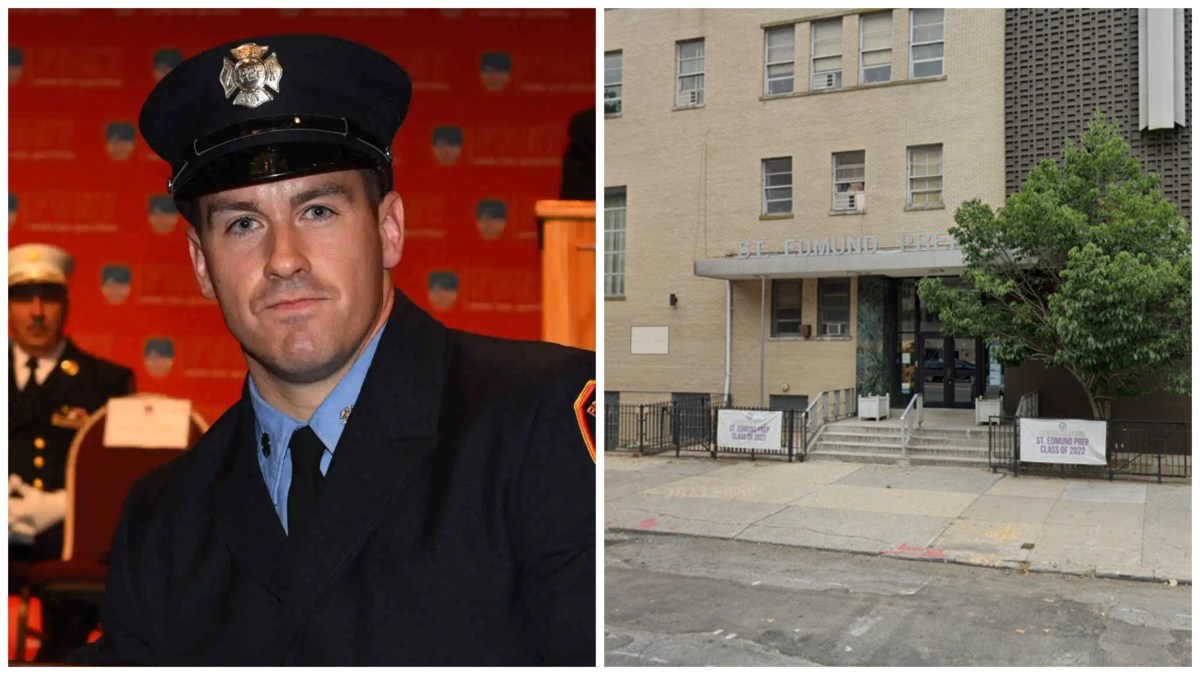
BY LINCOLN ANDERSON | Last Friday, alumni members of N.Y.U. Divest held a call-in day of action that generated dozens of telephone calls into President John Sexton’s office, urging the university to divest from the top 200 fossil fuel companies. Four alumni and several students braved the rain to kick off the call-ins in Washington Square.
The alumni call-ins followed a panel discussion at N.Y.U. the week before that drew more than 60 students and leading activists on the issue.
Activists say that, after building a new co-generation plant and taking other laudable sustainability measures, N.Y.U. must “continue to fulfill its mission of global leadership by divesting from fossil fuels.”
The university provided a statement to administrators on Friday to “help them respond” to the divestment phone calls.
“N.Y.U. believes that the most important step it can take to reduce climate change is to reduce our carbon footprint,” the statement said. “That’s why we have invested nearly $125 million just a few years ago to create a state-of-the-art cogeneration plant that, together with other steps — such as installing high-efficiency lighting and automatic switches to reduce electrical consumption — has enabled N.Y.U. to reduce its carbon footprint by approximately 40 percent over the last six years. Through our widely recognized and ongoing sustainability efforts, we continue to actively pursue steps to reduce our carbon footprint even further.”
The statement continued, “The role of the endowment is to provide financial resources for students and faculty now and in perpetuity. Like other universities [the N.Y.U. statement linked to a statement by Harvard University], N.Y.U. believes it should be cautious and circumspect about using the endowment as a vehicle for expression of political opinion. This is partly because our focus should be on maximizing returns that can support the university financially, and partly because, in a university as diverse as N.Y.U., there are a wide range of political opinions on any matter, including whether divestment is the best route to combat climate change.
“As we have said in the past,” the statement concluded, “there is a mechanism for judging whether the weight of campus sentiment about a political issue is sufficiently great that it should be taken into account in our investment strategies, and that is for the matter to be considered by the University Senate. So far, this issue has not come forward there.”
An N.Y.U. spokesperson did not immediately answer The Villager’s question on whether Sexton will agree to meet with N.Y.U. Divest. But the statement did say that other top university administrators have previously met with the group.
In response to the university’s statement, an N.Y.U. Divest spokesperson said they are fully committed to going through the University Senate process.

















